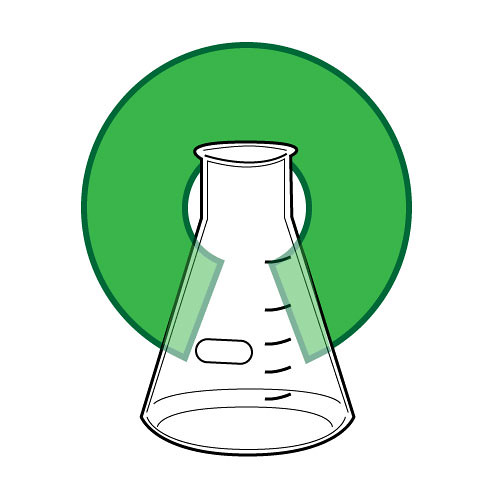In response to the COVID-19 pandemic, Creative Commons published an article titled, “Now Is the Time for Open Access Policies—Here’s Why” in March 2020. We felt it imperative to underscore the importance of open access, specifically open science, in times of crisis. A lot has changed since March of last year and it’s important to assess the progress made and take a hard look at the dangers ahead.

In this panel, hosted on 16 March 2021, we examined the fields of Open Data, Open Science, and Open Source Medical Hardware with panelistsDr. Tarek Loubani(Medical Director and Physician, The Glia Project)Dr. Tim Hubbard(Professor of Bioinformatics, Department of Medical & Molecular Genetics at King’s College London), andDr. Uma Suthersanen(Professor of Global Intellectual Property Law, Queen Mary University of London).
ModeratorBrigitte Vézina(Director of Policy, Creative Commons) opened the panel with this question: What does “open” mean in the context of COVID-19?
Dr. Suthersanen explained that “open” can mean a lot of things—from open science to open data to open GLAM—but the past year and a half has especially illustrated the importance of open platforms. “You can have a lot of ‘openness,’ but if there are no bridges and if the platforms are all closed [behind a paywall, for instance] then is anything really open?” she asked. Open platforms are especially important for the dissemination of scientific research. “One of the things that have happened as a result of COVID,” Dr. Hubbard responded, “is we’ve seen a vast amount of people publishing in open journals or on free publication platforms.” In fact, the pandemic has pushed scientists into pre-publishing their work almost immediately rather than waiting for journals and/or peer review.
This pandemic illustrated the necessity and effectiveness of public pressure on companies to open up their intellectual property when it’s in the public’s interest.
In general, the panelists agreed that the open movement had been strengthened through the crisis. Dr. Suthersanen, in particular, pointed out that the number of discussions around patents and intellectual property (IP) over the last year has grown immensely—this is a positive development because it means the IP conversation has taken on momentum. “IP has not descended from a god,” she explained, “they are state-granted property rights…What they give, they can take away.” To take advantage of this momentum, we need to change the narrative around IP to combat the fear that pharmaceutical companies have. Dr. Loubani also recognized that during the pandemic we saw what happens when the supply chains fall apart: the momentum behind open source medical hardware during COVID-19 came out of an urgent need for supplies and devices. He also mentioned that the pandemic illustrated the necessity and effectiveness of public pressure on companies to open up their IP when it’s in the public’s interest.
So what does the future of “open” look like?
Whileopenly sequencing the genomeof the virus wasn’t really an issue, explained Dr. Hubbard, the primary challenge to more openness in science, especially healthcare, is sharing individual patient data for research purposes. We need to figure out how to protect people’s privacy regarding their health data but also openly share that information with scientists to inform medical innovation and research. “Maybe we’ll get away from the idea of data sharing,” he suggested, “and lean more towards sharing information that is the summary of a set of data while the raw data itself stays locked away.” Dr. Loubani agreed, saying that data privacy is a major issue in open-source medical hardware and open science because it can impact people’s trust in their healthcare systems and providers. That’s why, he explained, Glia is focused on designing with privacy and trust in mind. There is no other option. “Open isn’t only the most ethical way forward, it’s the most practical,” Dr. Loubani emphasized, “We can’t go back.”
“We’re convinced that you have to be a ‘giant’ to actually do something that matters, but you don’t—and I’m not. It’s all of these little movements that help us move forward”
CC’s Director of Policy Brigitte Vézina explained why hosting these conversations and asking these questions are so important. “The open movement doesn’t exist for its own sake, it’s there to try and achieve higher goals, such as access to education or healthcare,” she said, “The open movement enables citizens to exercise their fundamental rights.”
Finally, we ended the panel on a hopeful note as Dr. Loubani reminded everyone of the responsibility and capabilities we all have to carry this movement forward. “We’re convinced that you have to be a ‘giant’ to actually do something that matters, but you don’t—and I’m not,” he explained, “It’s all of these little movements that help us move forward…We’ve gone forward 20 or 25 years in open access in the past year during the pandemic, and now it’s ours to lose.”
Of course, there’s a lot more conversation that isn’t mentioned here—from questions about combatting vaccine hesitation to a discussion around marrying human rights and open access—that’s why we highly encourage you towatch the full panel(with subtitles in Français and Español)!
想知道小组成员在做什么吗?Check outDr. Suthersanen’s latest workon reframing the TRIPS agreement into a dignity framework vs. trade, Dr. Hubbard’s work withHealth Data Research UKand theUK Reproducibility Network, and Dr. Loubani’s work withGlia, whichrecently announcedthey’re producing and distributing open-source medical hardware in the United States!




